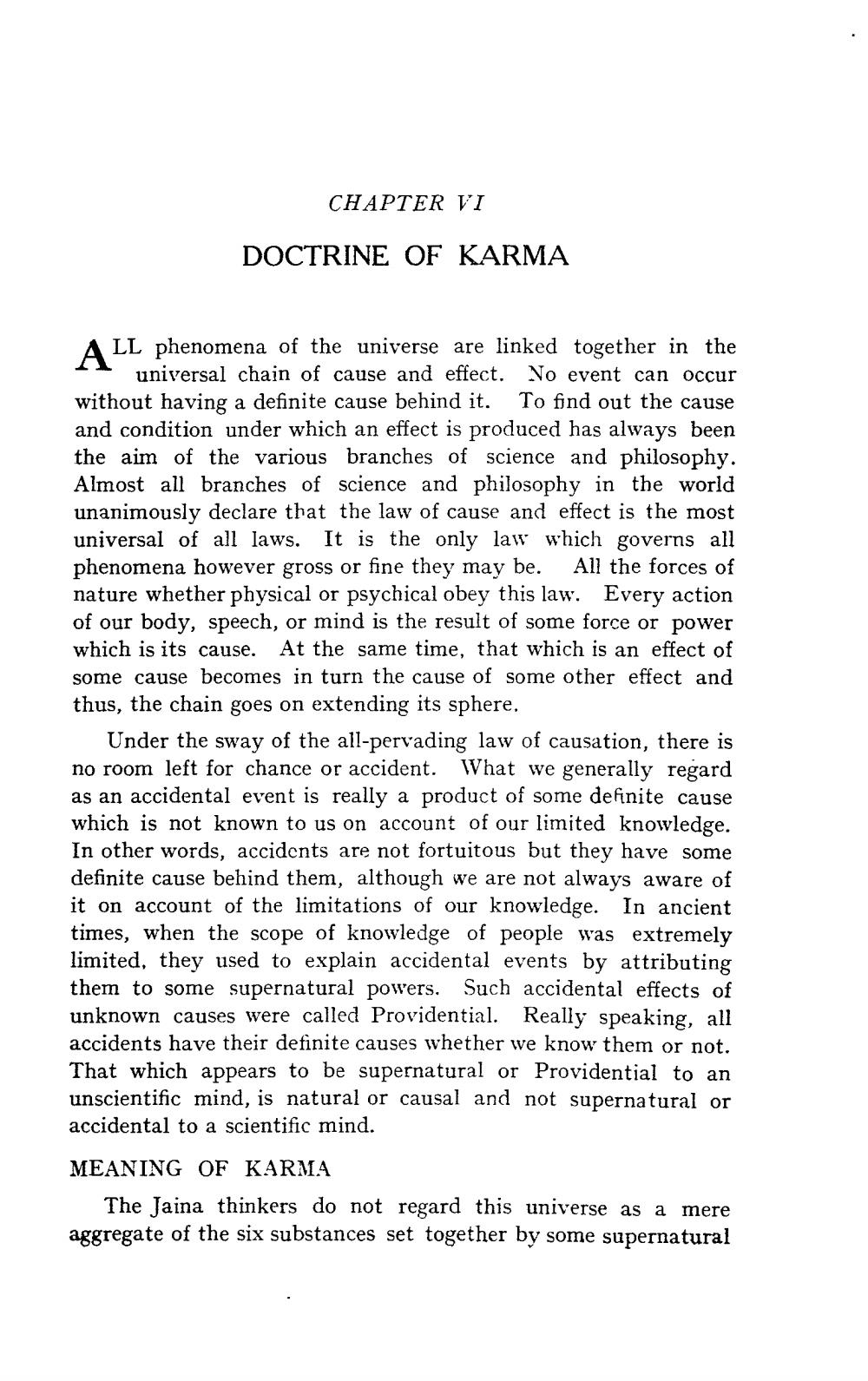________________
CHAPTER VI
DOCTRINE OF KARMA
ALL phenomena of the universe are linked together in the
universal chain of cause and effect. No event can occur without having a definite cause behind it. To find out the cause and condition under which an effect is produced has always been the aim of the various branches of science and philosophy. Almost all branches of science and philosophy in the world unanimously declare that the law of cause and effect is the most universal of all laws. It is the only law which governs all phenomena however gross or fine they may be. All the forces of nature whether physical or psychical obey this law. Every action of our body, speech, or mind is the result of some force or power which is its cause. At the same time, that which is an effect of some cause becomes in turn the cause of some other effect and thus, the chain goes on extending its sphere.
Under the sway of the all-pervading law of causation, there is no room left for chance or accident. What we generally regard as an accidental event is really a product of some definite cause which is not known to us on account of our limited knowledge. In other words, accidents are not fortuitous but they have some definite cause behind them, although we are not always aware of it on account of the limitations of our knowledge. In ancient times, when the scope of knowledge of people was extremely limited, they used to explain accidental events by attributing them to some supernatural powers. Such accidental effects of unknown causes were called Providential. Really speaking, all accidents have their definite causes whether we know them or not. That which appears to be supernatural or Providential to an unscientific mind, is natural or causal and not supernatural or accidental to a scientific mind.
MEANING OF KARMA
The Jaina thinkers do not regard this universe as a mere aggregate of the six substances set together by some supernatural




